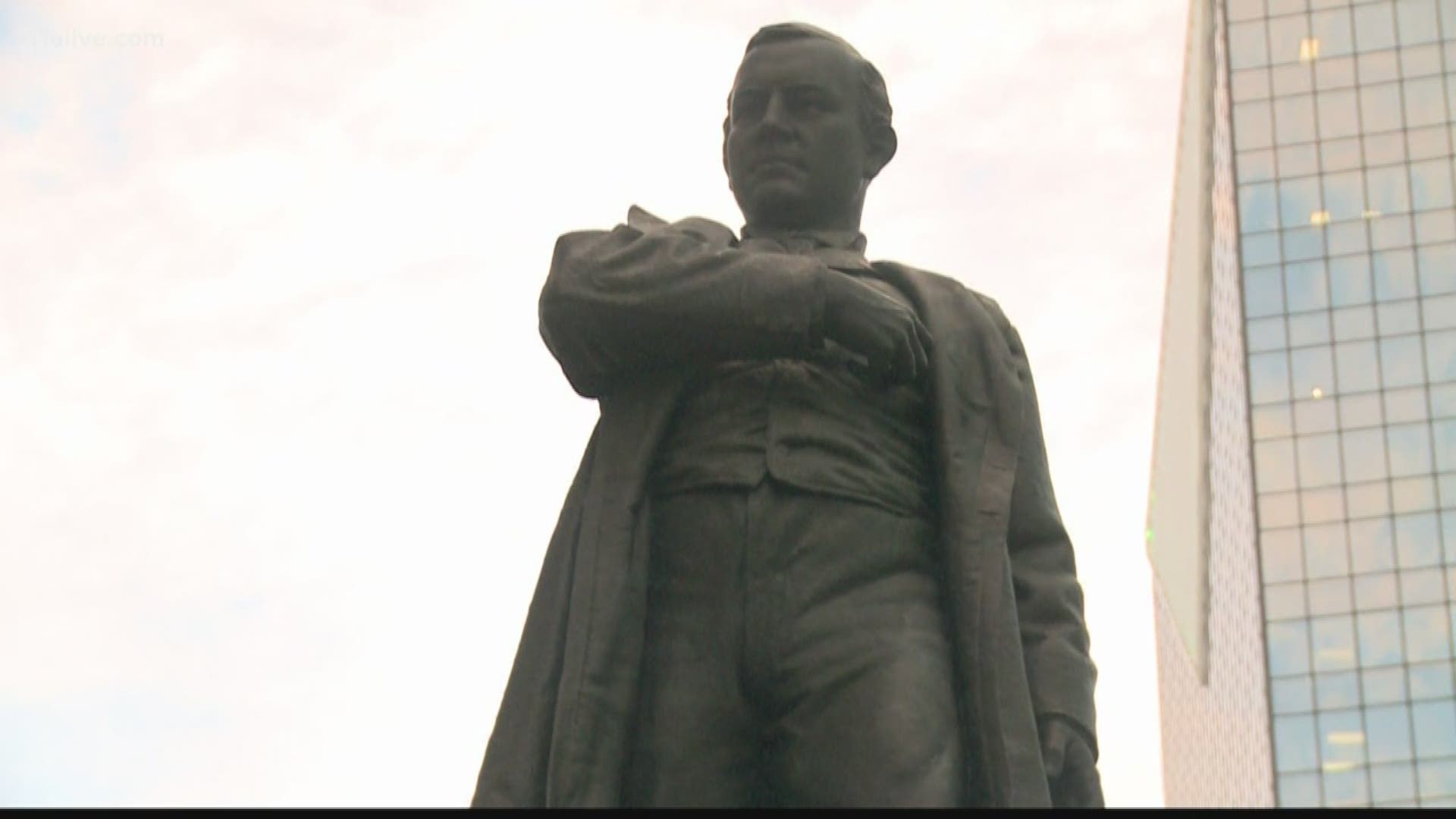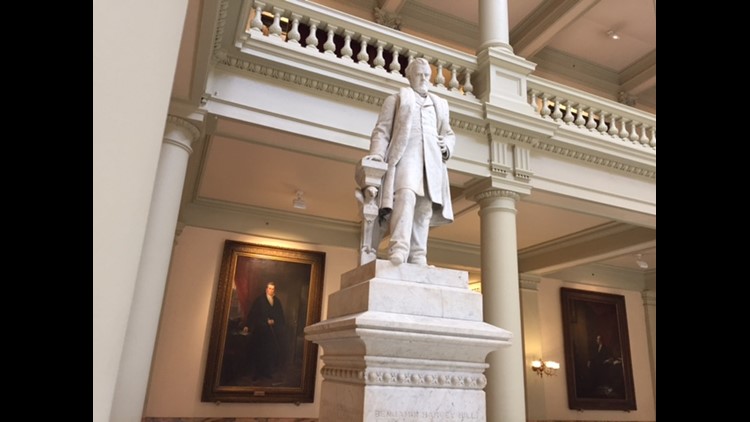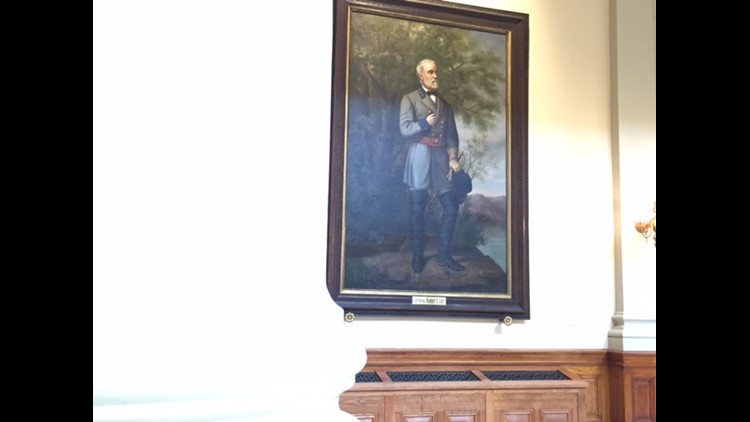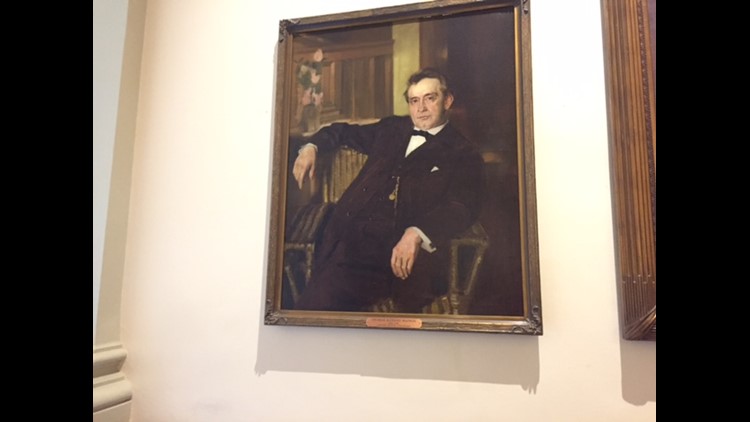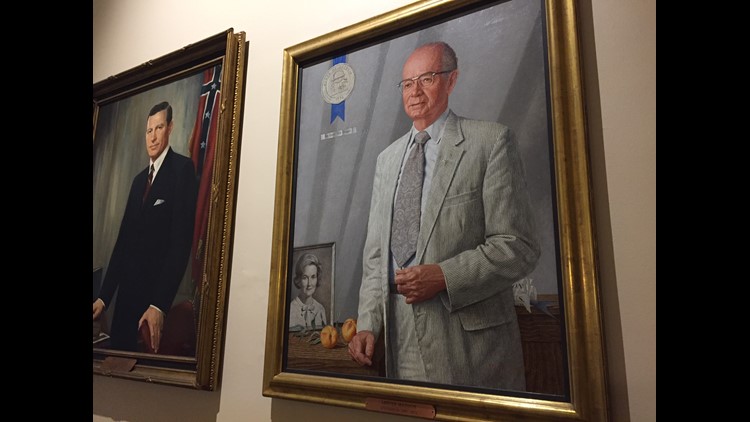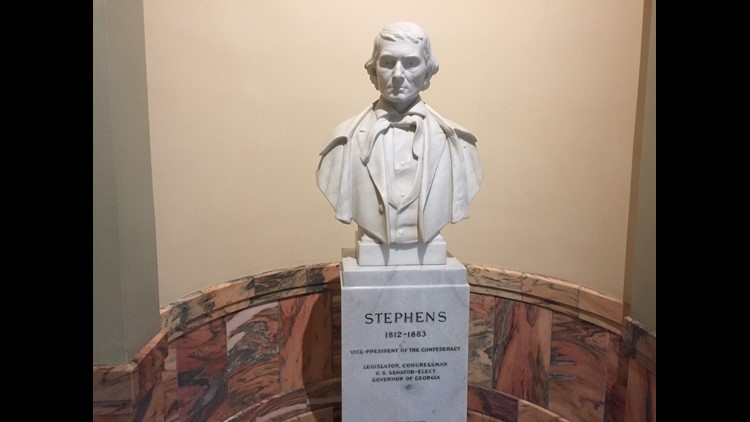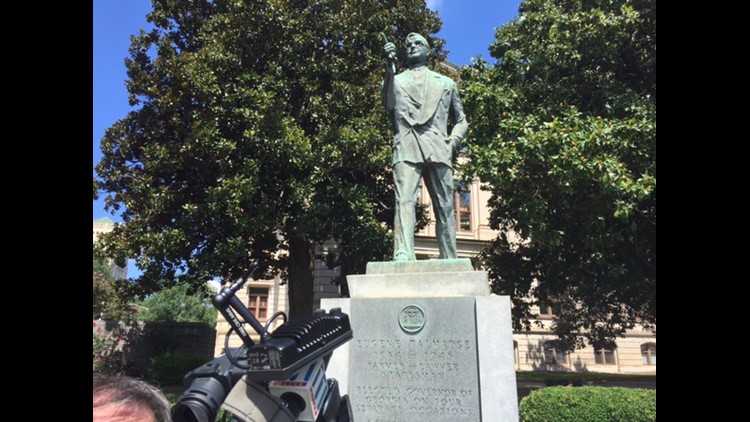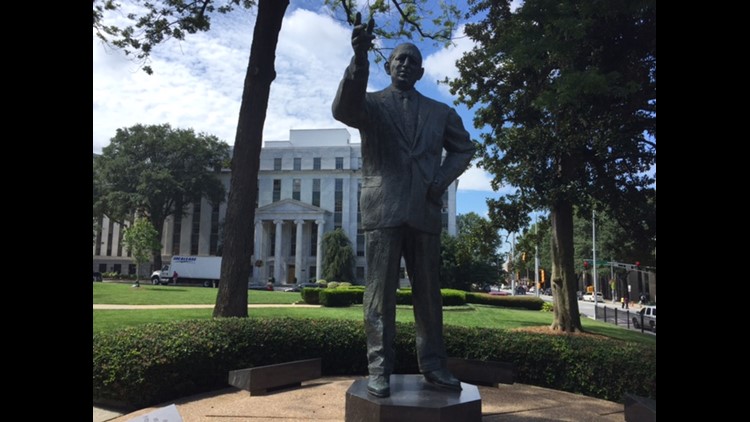ATLANTA — Henry Grady’s name is hard to avoid in Atlanta – it’s on the city’s public hospital, Grady Memorial, and on one of its largest public high schools, Henry W. Grady High School.
You can also find it downtown on a statue of the man, at Marietta and Forsyth Streets, an intersection designated “Grady Square” back in 1929.
Students at Georgia State are making the argument that, at least as far as the statue is concerned, Atlanta should rethink its association with the Grady name.
“Etched into his plaque are three celebratory words: ‘Journalist, Orator, Patriot,’” an editorial in the student paper, The Signal, published on Tuesday reads. “Let us be clear in recognizing that Grady, as a journalist, promoted racism. Grady, as an orator, promoted racism. And Grady was certainly no patriot - he was simply a racist.”
The editorial is signed by the newspaper’s editorial boards and Georgia State student groups that include the Young Democrats of Georgia and the Black Student Alliance. Both the Student Government Association president and vice president signed it, as well.

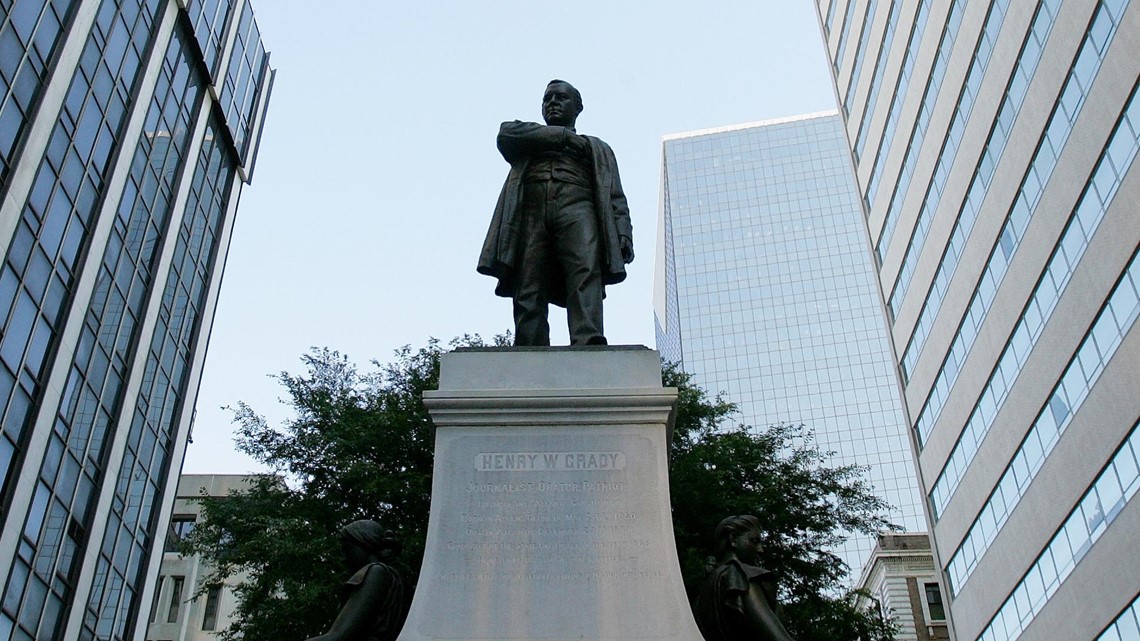
In the editorial, the students lay out the case against Grady, a celebrated speaker of his time who frequently made speeches around the country advocating a more industrialized “New South” in the decades after the Civil War – and who offered a paternalistic, racist vision of how black people fit into this new society.
Black people, Grady told a New York audience in 1886, had “the fullest protection of our laws and the friendship of our people” and that "the relations of the Southern people with the Negro are close and cordial." This, in the midst of a decade in which lynchings of black Americans, primarily in the South, had become a principal instrument for re-enforcing white supremacy after Reconstruction.
PHOTOS: Confederate memorials at Ga. state Capitol
While he said in that same speech he was glad that “human slavery was swept forever from American soil,” he also asserted that “the South has nothing for which to apologize.”
And as The Signal editorial noted, his racism was far more transparent in front of Southern audiences. Speaking at a Dallas, Texas function a year after his New York speech, he said “the supremacy of the white race of the South must be maintained forever … because the white race is the superior race.”

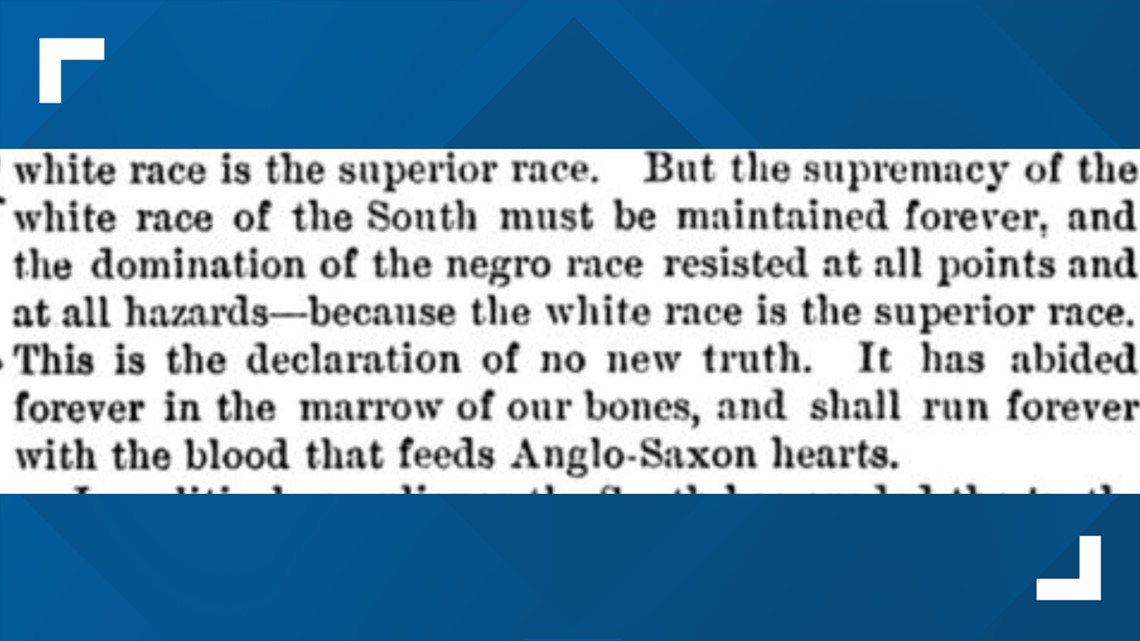
“By keeping Grady on a literal and figurative pedestal, we continue to celebrate a legacy that is incompatible with Atlanta’s progressive character,” The Signal editorial notes. “Is this truly what ‘the city too busy to hate’ celebrates?”
The writers propose moving the statue to the Atlanta History Center, but acknowledge one serious hurdle: Georgia law.
A state Senate bill signed into law by Gov. Brian Kemp in April makes it extremely difficult to remove or relocate monuments in Georgia.
“No publicly-owned monument erected, constructed, created or maintained on the public property of this state or its agencies, departments, authorities, or instrumentalities or on real property owned by an agency or the State of Georgia shall be relocated, removed, concealed, obscured or altered in any fashion by any officer or agency,” the law states.
The exception is if “appropriate measures” are taken for the “preservation, protection and interpretation” of the monument, though the law later explicitly rules out relocating one to a museum.
“A monument shall not be relocated to a museum, cemetery, or mausoleum unless it was originally placed at such a location,” it states.
Notably, earlier this summer Dallas – where Grady proclaimed that “the white race is the superior race” – moved a Robert E. Lee statue by simply selling it. The Georgia statue protecting monuments stipulates only those that are publicly owned, though it’s not clear if the City of Atlanta owns the Henry Grady statue.
In the meantime, the Georgia State editorial writers offer a modest solution: a plaque at the Grady statue “clarifying who he was and what he believed,” something the city has already done at various Confederate markers.
They’re also calling on Mayor Keisha Lance Bottoms to publicly advocate a change to the recently-passed law.
MORE HEADLINES

